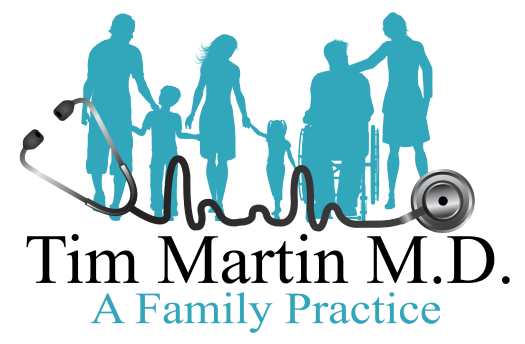
Did you know heart disease is the top killer every year? Problems with your cardiovascular health, like high blood pressure, can cause heart failure, heart attacks, strokes, and other life-threatening conditions.
The good news is that you can stop most heart conditions before they start — and even reverse heart health conditions — by keeping your heart healthy and boosting your cardiovascular health.
Dr. Tim Martin and our experienced care providers at Tim Martin M.D. in Abilene, Texas, recommend changing some of your lifestyle and habits to improve your cardiovascular system and keep your heart in top shape. Our team is here to help you and your family keep your heart healthy and strong.
Take a moment to understand your risk factors for heart disease and how you can improve heart health. Following these five tips from our team will get you on the path to better cardiovascular health.
What decreases my cardiovascular health?
The health of your heart isn’t only about this powerful muscle. Other factors tax your cardiovascular health and increase your risk of developing serious problems. Here are some of the most common risk factors for cardiovascular health:
- Stress and high blood pressure (>139/80 mm Hg)
- Obesity (BMI > 25)
- An unhealthy diet
- Lack of exercise
- Smoking
- High total cholesterol (>200 mg/dL)
- Low “good” cholesterol (HDL < 40 mg/dL)
- High “bad” cholesterol (LDL > 100 mg/dL)
- Family history
Certain medical conditions, like diabetes, also decrease your overall cardiovascular health. Nearly 50% of all Americans have at least one of the above risk factors.
What are some ways I can boost my cardiovascular health?
Even though many people have one or more risk factors, you can make some simple changes to improve your cardiovascular health. Here’s a closer look at five of the most impactful.
1. Eat heart healthy foods
Nothing is more important for heart health than a heart-healthy diet. For the biggest boost in your cardiovascular health, plan the bulk of your diet around plants by choosing fruits, vegetables, whole grains, lean protein sources, like legumes and beans, and healthy, unprocessed fats, like avocado.
Equally important is avoiding foods that damage your cardiovascular health. Stay away from unhealthy choices like all processed sugar, excessive salt, saturated fats, and processed and pre-packaged foods.
2. Get your heart pumping
Your heart keeps oxygen-rich blood pumping through your body, ensuring your overall health. To boost your cardiovascular health and keep your heart strong, aim to break a sweat and get your heart pumping five days per week for 30 minutes.
Many activities get your body moving to promote cardiovascular health. Pick one you enjoy, so you’ll have an easier time sticking with the exercise.
Weight-bearing exercises also play a key role in your heart’s health. Incorporate weight-bearing exercises to improve overall body and heart strength two to three times per week. If you’re new to exercise, Dr. Martin can help you create an exercise routine that works with your needs.
3. Maintain a healthy weight
When you weigh more than you should, your heart has to work harder. This can put an excess strain on this important muscle. Losing weight healthily (one to two pounds per week) reduces this strain. What’s more? Maintaining a healthy weight improves other factors related to cardiovascular health, like lowering your blood pressure and cholesterol.
To lose weight healthily, consume whole, healthy foods and increase your activity levels. Our team at Tim Martin MD can help you develop a healthy weight loss plan tailored to you.
4. Manage your stress in a heart-healthy way
If you’re like most people, you don’t always cope with stress in a heart-healthy way. Managing your stress by lounging around, overeating, smoking, drinking alcohol, or not getting enough sleep increases your risk of developing hypertension and heart disease.
By adopting heart-healthy stress management techniques, you can boost your cardiovascular health. When you feel stressed, try doing some exercise, meditating, or practicing deep breathing. You can learn more here about the link between stress and cardiovascular health.
5. Get your blood pressure checked regularly
High blood pressure is a major contributor to heart disease and a precursor of heart attacks. You can monitor your numbers by using blood pressure machines found at most pharmacies and grocery stores.
It’s also important to have your blood pressure checked by a medical professional at least every three years if you’re under 40, or annually if you’re over 40 or have a history of high blood pressure. Regular care at Tim Martin MD guarantees a blood pressure check and evaluation of other important markers, like cholesterol levels.
Call our Abilene, Texas, office to schedule an exam, or make an appointment using our online booking tool now to learn more about boosting your cardiovascular health!
